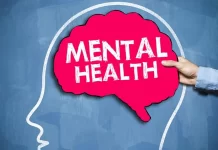
A Non-Governmental Organisation, Children Emergency Relief Foundation, has advised the public against the use of unprescribed medicines and herbal remedies for the treatment of malaria.
The organisation’s Executive Director, Mrs. Abosede Oyeleye, gave the advice during a medical outreach in commemoration of World Malaria Day on Thursday in Ikorodu, Lagos State.
World Malaria Day is celebrated annually on April 25 and this year’s theme was ‘Time to Deliver Zero Malaria: Invest, Innovate, Implement’.
Malaria is a life-threatening disease spread to humans by female Anopheles mosquitoes, found mostly in tropical countries.
According to the World Health Organisation, 247 million cases of malaria were reported in 2021, from which 619,000 people died, while 96 per cent of the fatalities lived in Africa.
WHO in a report, said that more than 66 million cases of malaria occur annually in Nigeria, while one out of three deaths from malaria globally, occur in Nigeria.
The global health agency said that about 200,000 deaths from malaria occurred in Nigeria in 2021, which translates to Nigeria contributing 27 per cent to the global malaria mortality in 2021.
Oyeleye said that self-medication, poor health-seeking habits and drinking of different herbal concoctions are exacerbating morbidity and mortality among citizens.
According to her, this has contributed to drug resistance, which lengthens treatment days or leads to malaria complications.
“The rate of poverty and illiteracy in Ikorodu community is high, that is why ‘Agbo’ (herbal concoctions) is the first thing people think about when they want to treat malaria.
“Many people buy these concoctions from roadside sellers, who mix all sorts of things, including alcohol to treat malaria. Instead of getting better, it gets worse and makes medical treatment difficult.
“For over 15 years, CERF has been at the forefront of making people in communities know that they have to handle their health better and bring this support to their doorstep.
“Malaria is not a disease that should be downplayed. We need to educate more people on its dangers, proper treatment and collaborate toward eliminating it.
“Government can’t do it all. We all have a role to play, that’s why we are trying to sensitise the public about it,” she said.
Oyeleye said that owing to ignorance among parents, many children are unable to access proper malaria treatment, leading to high child morbidity and mortality in the community.
She said concerted efforts to raise awareness, reduce malaria transmission, better understanding of the parasite and control measures, are crucial to achieving the 2030 global malaria elimination target.
The medical outreach organised by CERF, in partnership with Fidson Healthcare Plc, was held at Ita-Elewa Primary Healthcare Centre, Ikorodu.
The programme, which impacted no fewer than 300 residents, featured free screening for malaria, HIV, blood sugar, blood pressure and medical consultation.
Free insecticide-treated nets and medicines were also distributed to residents.










